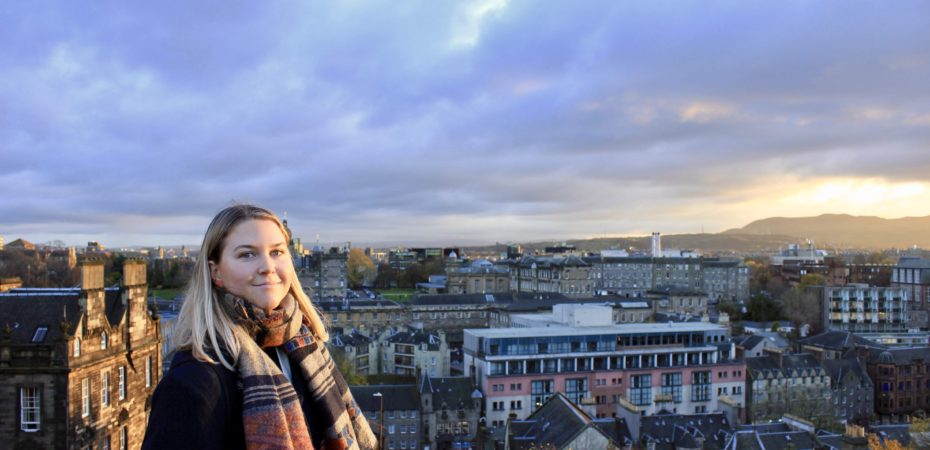Thanks to Angelina Smolynec, MSc Energy, Society, and Sustainability alumnus and Programme Manager, Energy Transition for this great #EdEcoCareers blog post. Angelina shares how applying speculatively can help secure a role in the field that you’re passionate about.
A week before my graduation ceremony at McEwan Hall, I moved down to London to start my first job in the field: managing an energy transition programme at an events company that works solely on climate issues. The work environment is fast-paced and requires a wide range of skills that I honed during my years of study – most relevant was my dissertation fieldwork, where I travelled to Ukraine and interviewed experts in the renewable energy industry. My current job includes a lot of international communication, understanding the barriers to transition and the opportunities for moving forward. The topics of climate change and energy transition are immensely complicated. Therefore, understanding the complexity of these issues is crucial to my role. In my day-to-day work, I move from marketing to sales to production, areas I had no experience in, but I showed my eagerness to learn and my passion for the topics at hand and was given a chance to prove myself.
When working around topics such as climate change and energy transition, having a global perspective to your day-to-day tasks is incredibly interesting. Keeping up with time-zones and busy schedules is a constant reminder that there is so much work being done on this; always in the background. Whether it is investment in innovation at the EU or organising the Conference of the Parties (COP) negotiations at the UN, keeping up with and being in the middle of these moments really feels like the work I am doing is part of something greater than myself.
When I was first looking for employment, I wasn’t sure what to expect. I did not think I wanted to work in events, but I kept my options open and reached out to every company and organisation that was working on renewable energy and climate action – all over the UK. The company I work at now had no vacancies posted online, but I reached out anyway and was asked to come in for an interview solely based on my CV and cover letter. Reaching out and asking for a chance was all I needed to take this next step. Being open to new opportunities and paths that may not look like the perfect fit is crucial to finding these hidden opportunities. There are so many roles out there that you may not even know exist – apply for them all and see how your skills can work in different environments.
My first job after my undergraduate degree was in the Canadian Parliament, a role that taught me an enormous amount about politics, cooperation, and diligence. I was worried that not having a science background would make it difficult for me to find work in the field of energy and climate action. If you would have told me back then that I would be living in London working on such international, inspirational, and powerful projects as I am now, I would not have believed you. I did not know exactly what I wanted to do, but I knew what issues I cared about and that I had to put in the time to figure out how to make that passion into a career. I don’t think you ever really feel like you’ve figured it out, but I’m getting there.
(Image credit: Angelina Smolynec)


